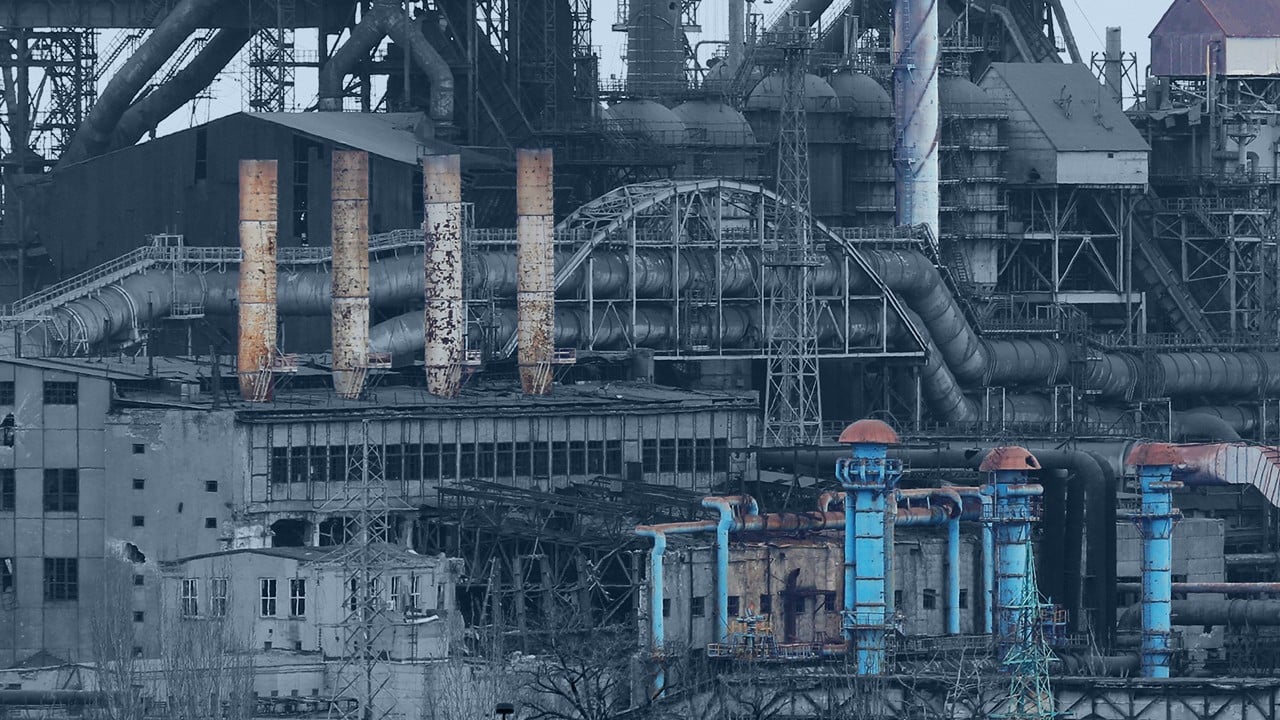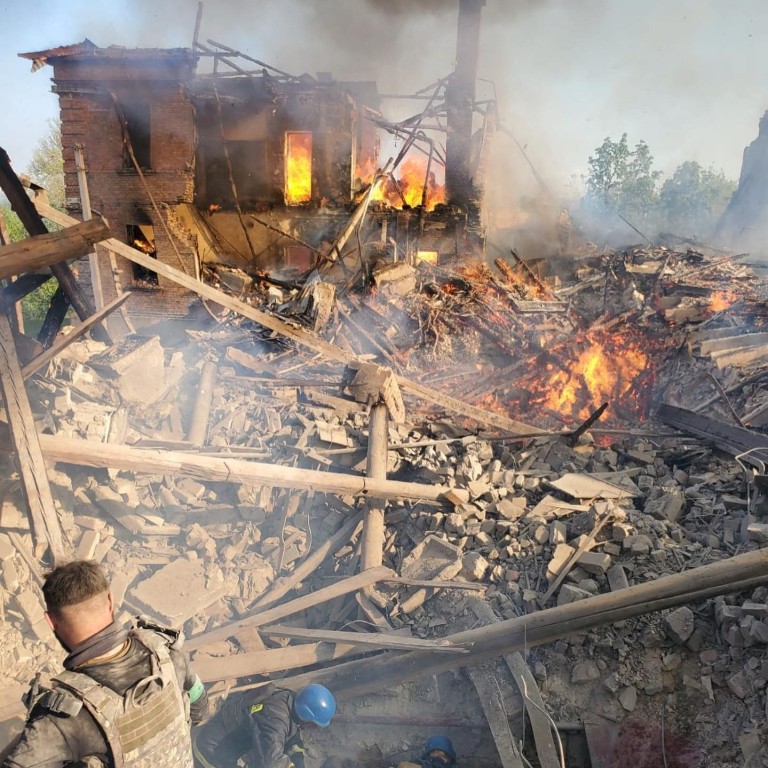
Ukraine war: Many feared dead in Luhansk after Russian air strike on a school
- Regional Governor fears as many as 60 people may have been killed in the bombing, but emergency services were able to rescue 30 people
- Russia set to mark Victory Day on Monday with MiG-29 fighter jets set to fly over Red Square forming the letter ‘Z’ – the mark of Russia’s assault in Ukraine
Ukrainian authorities have spoken of possibly up to 60 dead after a Russian air strike on a school in the Luhansk region in the heavily contested east of the country.
Two bodies have been recovered so far after an air strike on the school in Bilogorivka, the region’s Governor Serhiy Haidai announced on his Telegram channel on Sunday. “Probably all 60 people who are still under the rubble of the building are dead,” he added.
According to him, the air strike occurred as early as Saturday afternoon. In the school building, 90 people had sought shelter from the attacks. The bombing caused a fire to break out in the school and the building collapsed.
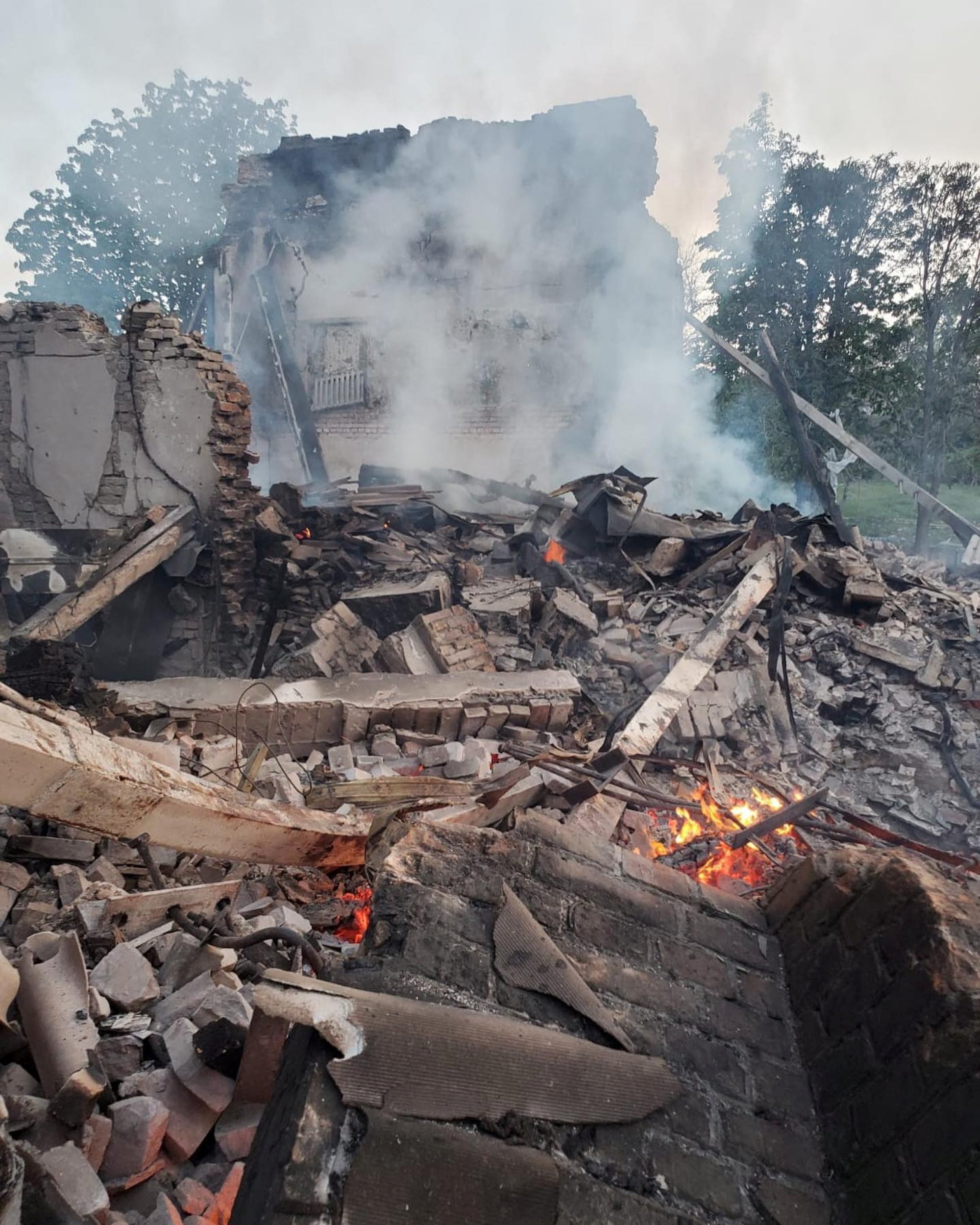
Emergency services were able to rescue 30 people, seven of whom were injured, the Governor said.
Bilogorivka is an urban settlement about 10 kilometres west of Lysychansk, which is under heavy Russian bombardment.
Luhansk and Donetsk together make up the Donbas region, where Russia has refocused its attacks since failing to make advances near the capital Kyiv and in other parts of Ukraine.
Pro-Russian separatists have been battling Ukrainian government forces in the region since 2014. Russia’s invasion of Ukraine on February 24 was launched soon after it recognised the independence of two self-declared “people’s republics” in Luhansk and Donetsk.
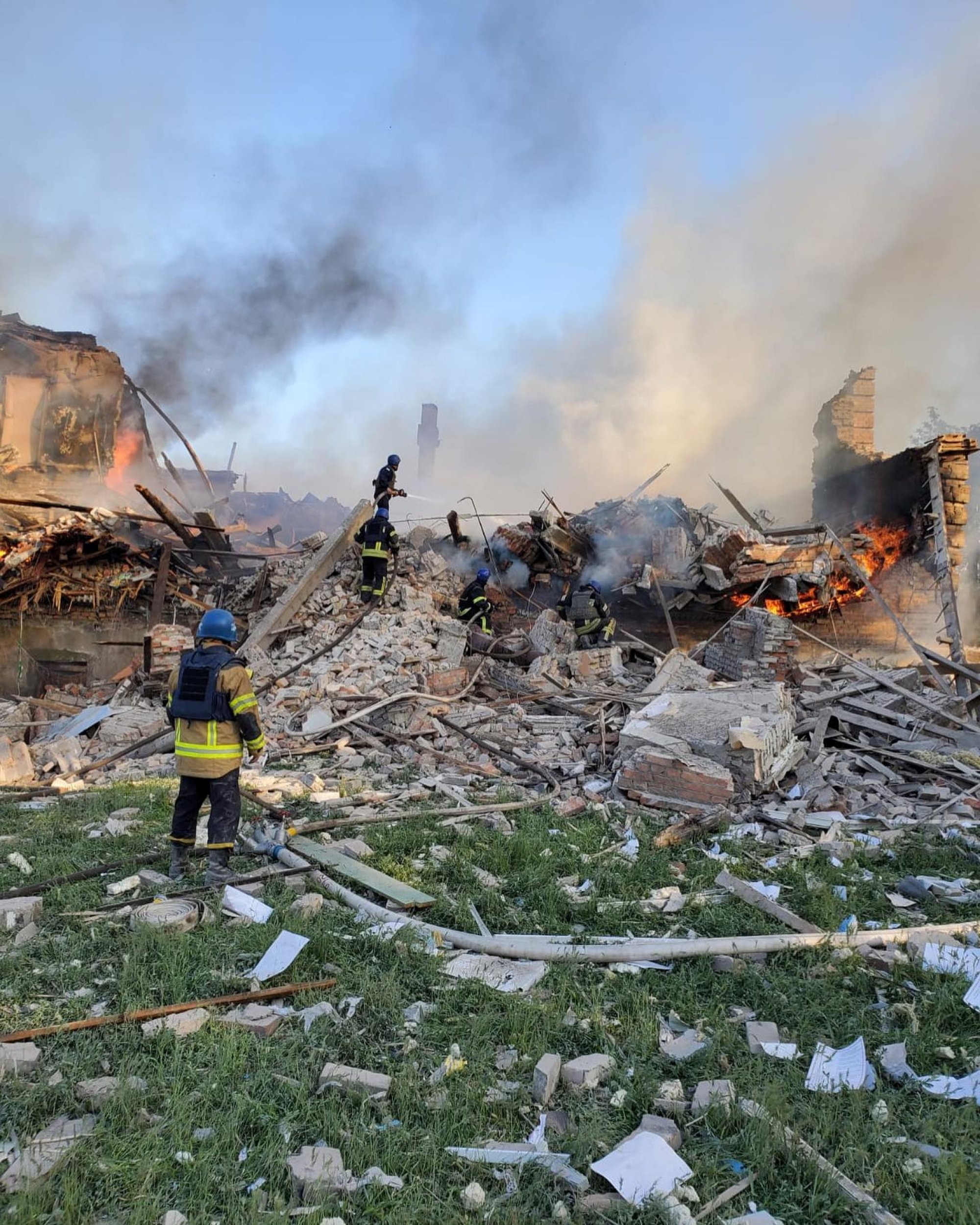
Ukraine’s last soldiers in the port city of Mariupol face a brutal final showdown on Sunday with besieging Russian forces, who are hoping to deliver a critical win ahead of the country’s victory day.
The complex – the final pocket of Ukrainian resistance in the devastated port city – has taken on a symbolic value in the war, with the last soldiers holed up in its sprawling network of underground tunnels and bunkers.
Taking full control of Mariupol would allow Moscow to create a land bridge between the Crimean peninsula, which it annexed in 2014, and regions run by pro-Russian separatists in the east.
“The enemy is trying to finish off the defenders of Azovstal, they are trying to do it before May 9 to give [Russian President] Vladimir Putin a gift,” Oleksiy Arestovych, an aide to Ukraine’s president, said.
Ukraine’s far-right Azov battalion, leading the defence at the steelworks, said one of its fighters had been killed and six wounded when Russian forces opened fire during an earlier attempt to evacuate people by car.
Zelensky said hundreds of people had been removed from the plant on Saturday and that preparations for another stage of evacuation comprising the wounded and doctors were under way.
Evacuees afraid of ‘bleeding to death’ as they describe escape from steel mill
Earlier, Kyiv’s defence ministry said Russian forces had resumed their assault on the site, despite talk of a truce to allow trapped civilians to flee.
Russia’s forces may be seeking to hand Putin a win ahead of Monday’s Victory Day, when the country celebrates its 1945 defeat of Nazi Germany.
With the date fast approaching, Ukrainian officials fear more intense missile and artillery bombardments and renewed assaults as Moscow scrambles for symbolic victories.
At home, Russia will mark the holiday in grand style, with eight MiG-29 fighter jets set to fly over Moscow’s Red Square forming the letter “Z” – the mark of Russia’s military assault in Ukraine.
Seventy-seven aircraft are set to conduct a fly-past, including the rarely seen Il-80 Doomsday plane – built to withstand a nuclear attack.
But despite apocalyptic nuclear threats issued by Russian state media, the CIA said on Saturday it saw no indication Moscow was preparing to use tactical atomic weapons in the Ukraine conflict.
Why ‘Victory Day’ in Russia is different this year
“We don’t see, as an intelligence community, practical evidence at this point of Russian planning for the deployment or even potential use of tactical nuclear weapons,” CIA director Bill Burns said at a conference.
Burns also warned that Putin believed he could not afford defeat in Ukraine and that he might be “doubling down” on the offensive.
Russia’s campaign has run into tough resistance – and galvanised Kyiv’s Western allies to comprehensively sanction the Russian economy and Putin’s inner circle.
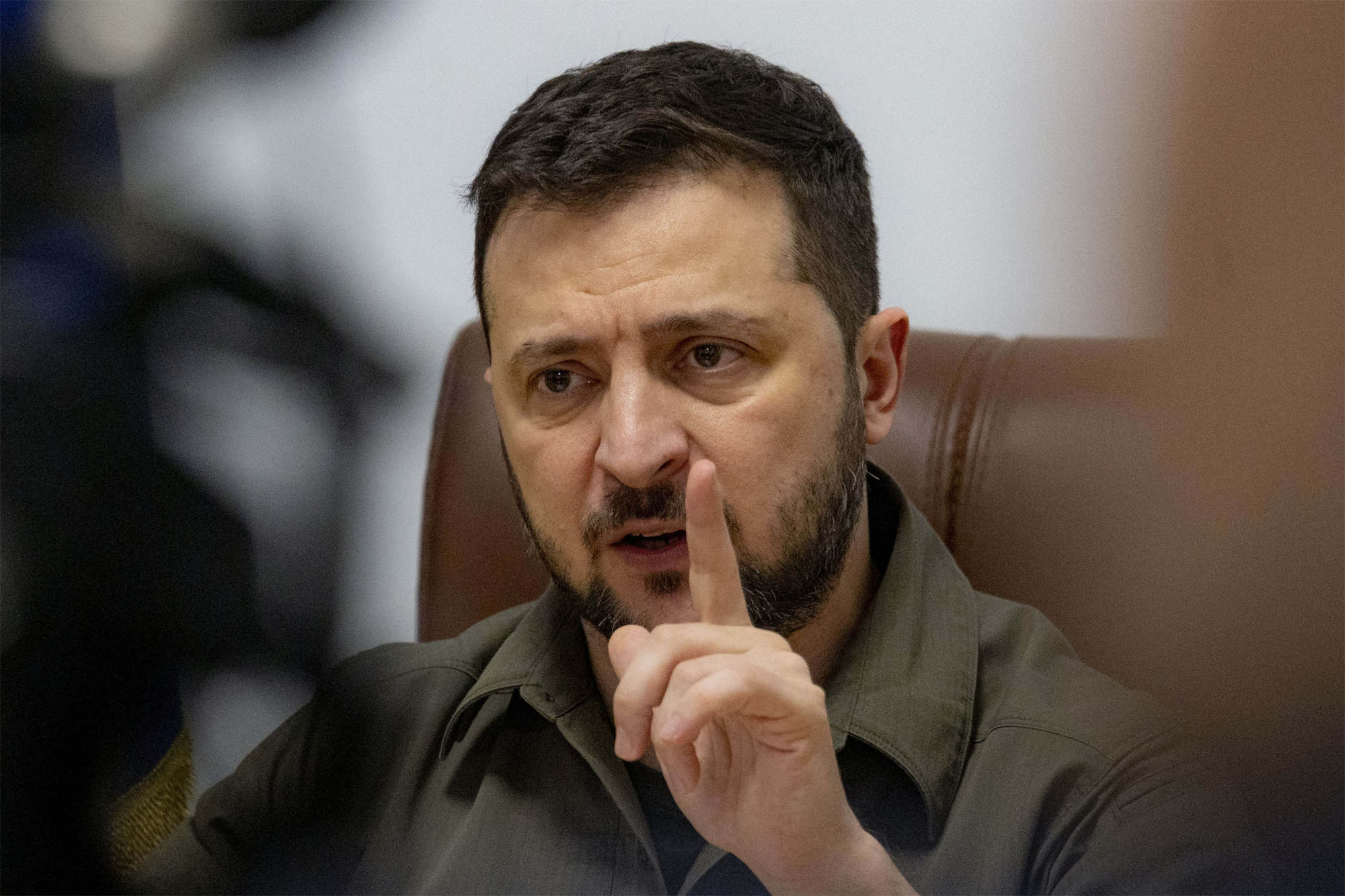
And international efforts to pressure the Russian leader continue, with G7 leaders, including US President Joe Biden and Ukraine’s Zelensky, set to discuss Western support for Kyiv via videoconference on Sunday.
German Chancellor Olaf Scholz will host the call and Zelensky will “take part and report on the current situation,” government spokeswoman Christiane Hoffmann said.
Further sanctions or at least a tightening of the huge array of economic punishments already inflicted on Russia are expected to be discussed.
Ambassadors from EU member states will also meet in Brussels on Sunday to discuss their sixth round of economic sanctions against Moscow, which this time should include a phased ban on imports of Russian oil.
UK to provide extra US$1.6 billion in military support to Ukraine
Far from the diplomatic wrangling, fighting continues across war-torn Ukraine.
The Ukrainian rescue service said a missile had hit a technical college in Kostiantynivka, in the eastern region of Donetsk, killing at least two people.
Donetsk regional Governor Pavlo Kyrylenko reported “massive bombardments” along the frontline.
Four civilians had been killed in Donetsk, two in Bakhmut and two in Kostiantynivka, with another nine people wounded, he added.
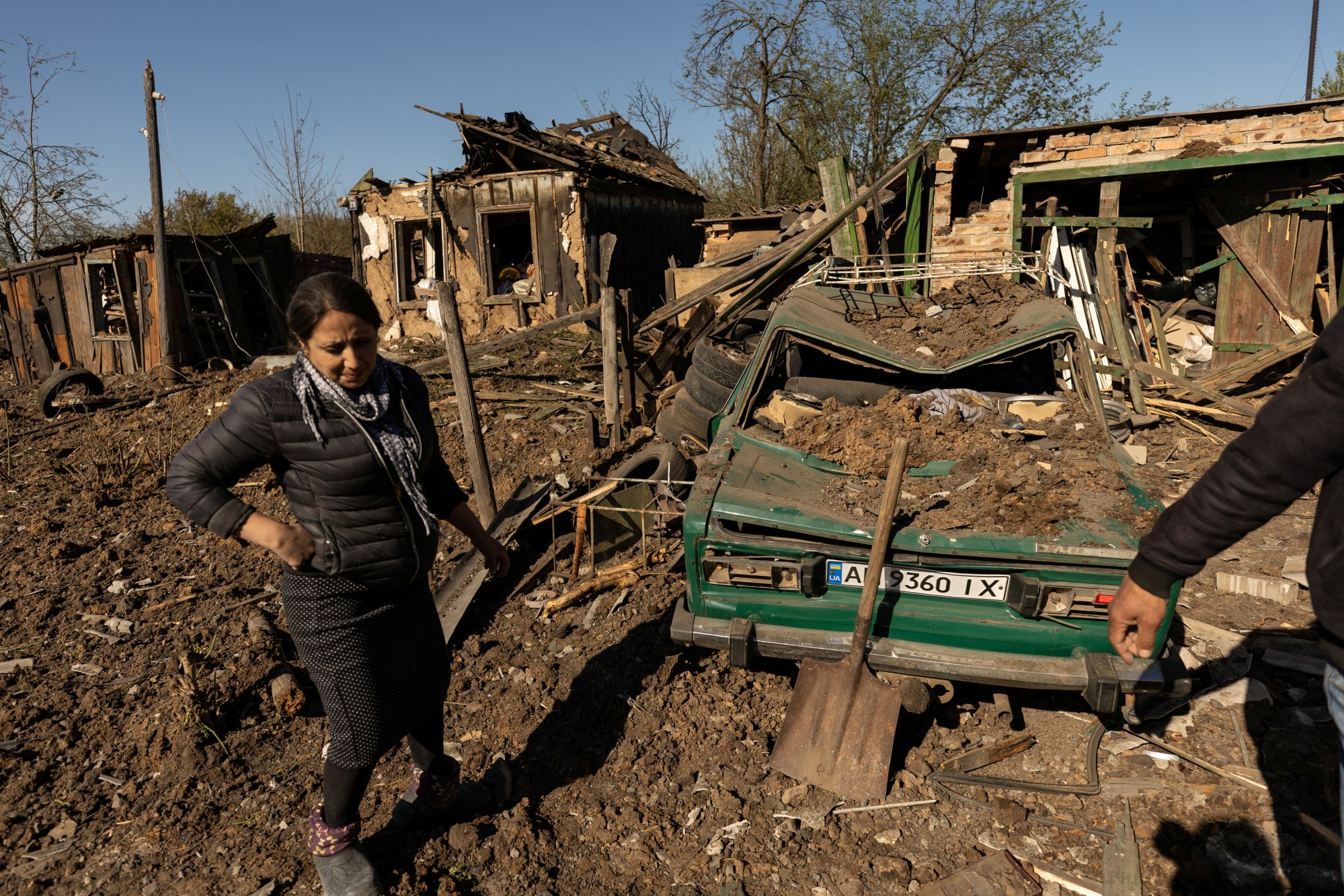
Zelensky on Saturday said a Russian missile has struck a museum in the Kharkiv region, announcing that the “Russian army destroyed or damaged nearly 200 cultural heritage sites already.”
Kyiv’s defence ministry said it had destroyed another Russian vessel – a Serna-class landing craft – in the Black Sea.
“The traditional parade of the Russian Black Sea fleet on May 9 this year will be held near Snake Island – at the bottom of the sea,” the ministry added. Russia did not immediately confirm the incident.
Ukraine war: Women, children and elderly evacuated from Mariupol steel mill
According to the defence ministry, Russian troops were forced to demolish three road bridges near Tsyrkuny and Ruski Tyshky outside Kharkiv in a bid to slow the Ukrainian advance.
And as the war drags towards its third month, British intelligence said Ukrainian forces equipped with high-end materiel by Western allies have been able to destroy some of Russia’s most advanced weaponry.
“The conflict in Ukraine is taking a heavy toll on some of Russia’s most capable units and most advanced capabilities,” UK Defence Intelligence said.
“It will take considerable time and expense for Russia to reconstitute its armed forces following this conflict,” it said, adding that sanctions on advanced components would make it harder for Russia to re-arm.
Additional reporting dpa

.png?itok=arIb17P0)
